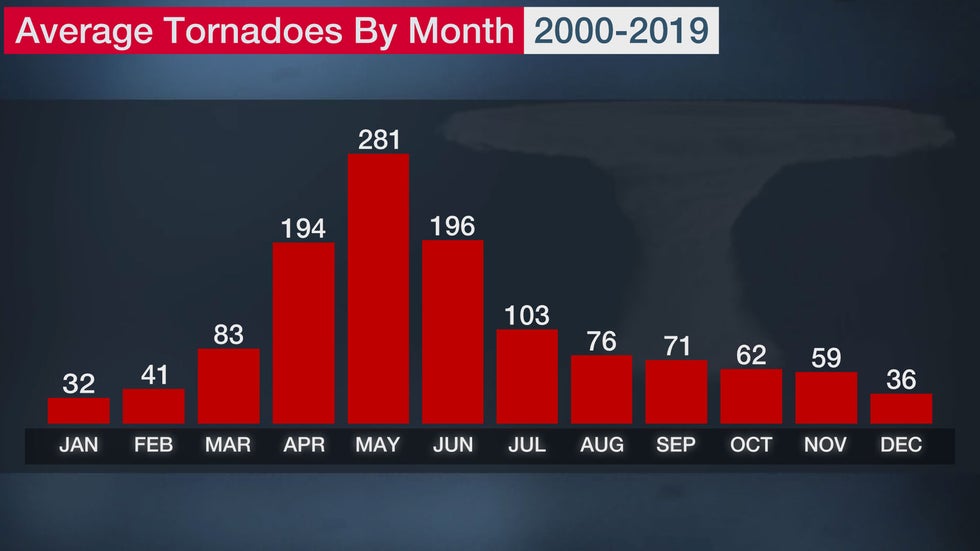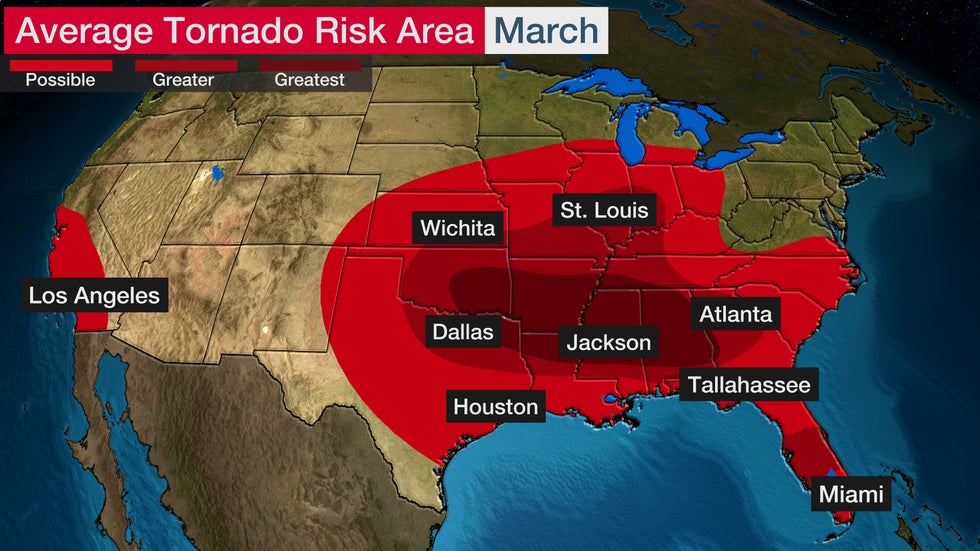Linda Lam

March kicks off an escalation of spring tornado season as the necessary volatile atmospheric ingredients for severe weather come together more often.
An average of 83 tornadoes occur each March, according to 20 years of data. This is about double the typical tornado counts observed in February. March is the fifth most tornadic month. Its average is on par with August and September, which historically get a boost in tornado activity from tropical storms and hurricanes.
March is almost like an appetizer to the peak of the severe season of April through June.
March has been a month of tornado extremes over the last five years. March 2017 was the most active March on record with 192 tornadoes. On the flip side, just 11 tornadoes were confirmed in March of 2015. March tornado activity was about average last year with a preliminary estimate of 83 tornadoes, according to NOAA's Storm Prediction Center.
After a stretch of three years with no March tornado deaths, there were 23 deaths in 2019 and 25 deaths in 2020. All of the deaths in 2019 occurred in Lee County, Alabama, on March 3, while three deadly tornadoes claimed 25 lives from late March 2 into early March 3 in Tennessee in 2020.
The worst tornado in U.S. history also struck in March. The "Tri-State Tornado" carved a path from Missouri to Illinois and Indiana on March 18, 1925, and killed 694 people.
(MORE: March Weather Has a Stormy Reputation That Includes Snow, Flooding, Tornadoes)
Where Tornadoes Occur in March
The tornado threat creeps farther north in March when compared to February. This is due to the jet stream migrating northward, along with ample moisture surging farther north at times. Warm, humid air then combines with jet stream winds that are still strong as spring begins.

Tornadoes typically form during March from the Southern Plains into the Ohio Valley and Deep South. Areas from eastern Oklahoma and northeastern Texas eastward into much of Alabama have the highest likelihood of tornadoes compared to other regions on average in March.
This doesn't mean that tornadoes can't occur outside the red-shaded areas on the map above. Extreme warmth in March 2012 helped tornadoes develop as far north as southern Minnesota and northern Michigan. Tornadoes occurred in Massachusetts and Pennsylvania in February 2017 and in Ohio and Pennsylvania in January 2019 and in Maryland in February 2020.
Now is the time to review or develop a severe weather plan. Do you know where to take shelter if you receive a tornado warning in the middle of the day or overnight and how you would get that warning?
The Weather Company’s primary journalistic mission is to report on breaking weather news, the environment and the importance of science to our lives. This story does not necessarily represent the position of our parent company, IBM.
The Weather Company’s primary journalistic mission is to report on breaking weather news, the environment and the importance of science to our lives. This story does not necessarily represent the position of our parent company, IBM.

No comments:
Post a Comment